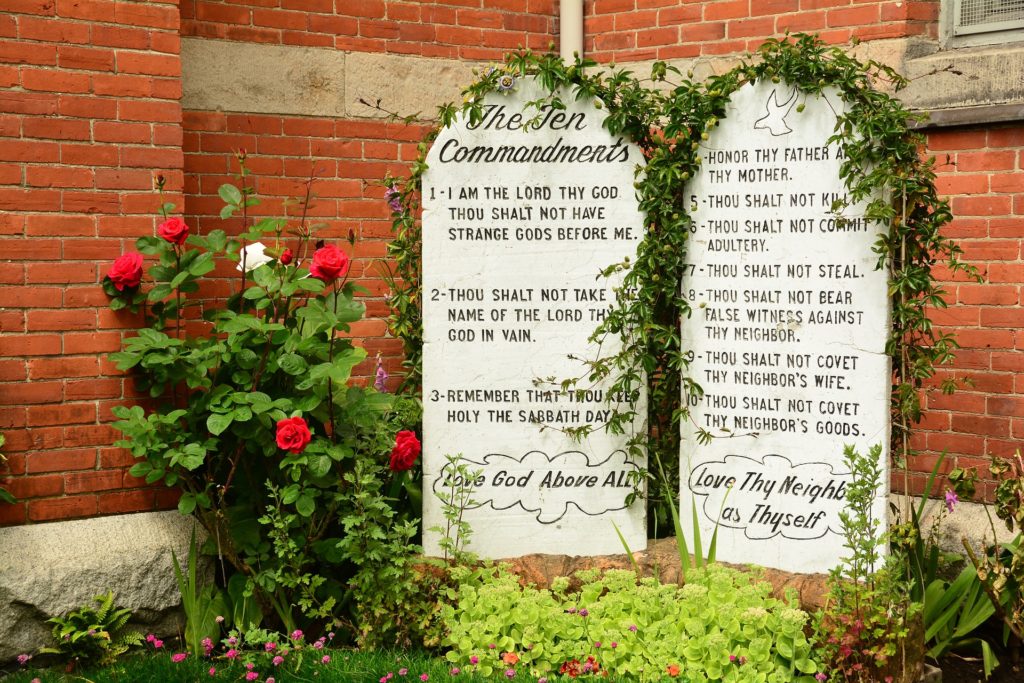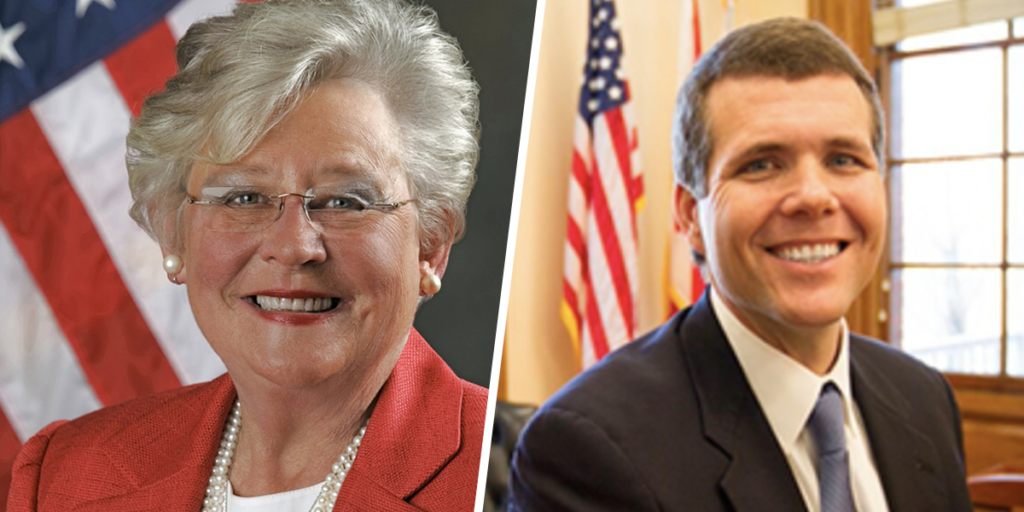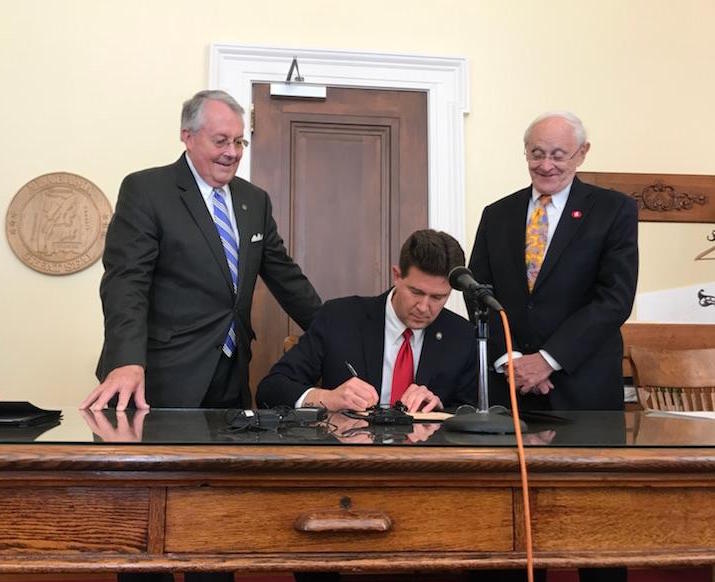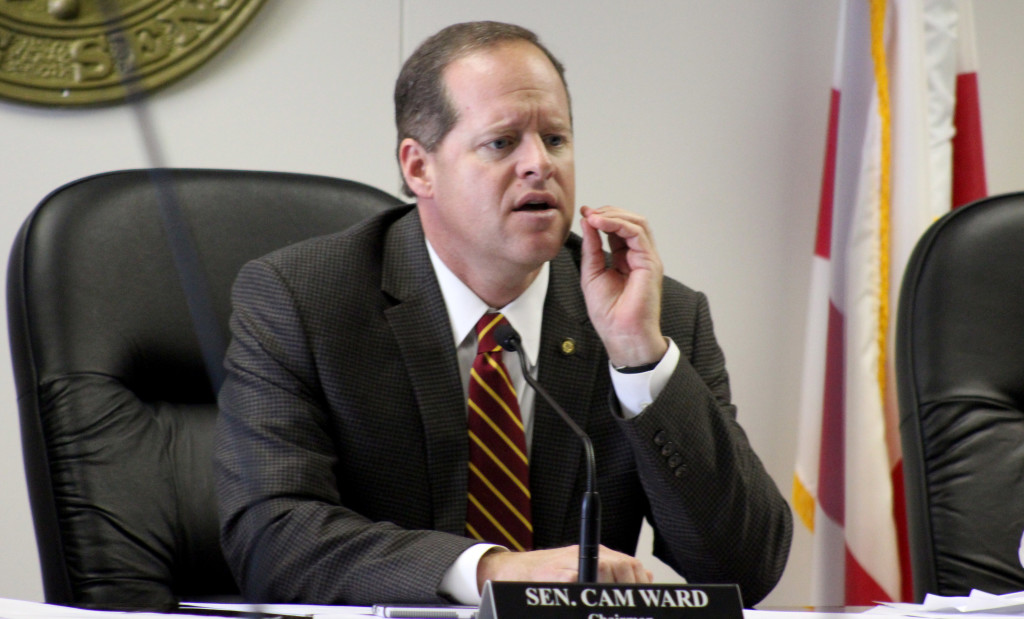Parker Snider: Understanding Constitutional Amendment One – The Ten Commandments and Religious Freedom

For years, discussion over the public display of the Ten Commandments has animated Alabama’s political landscape. The issue is so energizing, it seems, that many politicians frame their own races through the lens of this battle––that support for their candidacy is a vote for the Ten Commandments. Even so, Alabamians have never actually gotten a chance to vote directly on the issue. This November, however, a constitutional amendment sponsored by Senator Gerald Dial provides that opportunity. Statewide Amendment 1, if successful, would enshrine in the state constitution language signifying two things, a) that the Ten Commandments is authorized to be displayed on public property, including public schools and b) that no person’s religion can affect his or her political or civil rights. This amendment, as expected, has received its share of support and criticism. Dean Young, Chairman of the Ten Commandments PAC, suggests this to be a vote where Alabama decides if we “want to acknowledge God”. He also remarks that we will be held accountable for our vote on judgment day. Not all Christians agree with Young, however. The Baptist Joint Committee, for example, argues that “the government should represent all constituents regardless of religious belief” and not involve itself in “religious favoritism”. The question, of course, is of the real impact of this amendment. Essential to the discussion of impact is one provision within the amendment that may be easily ignored: the fact that any Ten Commandments display must comply with constitutional requirements. This provision explicitly acknowledges that Ten Commandments displays in Alabama are subject to the U.S. Constitution, and therefore the U.S. Supreme Court. The U.S. Supreme Court, it is important to note, has largely settled on an understanding of the constitutionality of this issue through three precedent-setting court rulings. In McCreary County v. ACLU, the Supreme Court ruled that the display of the Ten Commandments in a Kentucky courthouse was unconstitutional. In Van Orden v. Perry, however, the Court allowed the Ten Commandments to be displayed, provided it was within a larger array of historical monuments and markers. In regard to the display of the Ten Commandments in public schools, the Court ruled in Stone v. Graham that posting the Ten Commandments in every public school classroom, as required by a Kentucky law, served “no secular purpose” and was therefore unconstitutional. As this amendment is subject to these precedents and already-existing First Amendment protections, the approval or rejection of this amendment will likely have limited immediate impact in Alabama. What, then, is the purpose? In a recent call with the Alabama Policy Institute, Senator Dial––the sponsor of the amendment–– answered that question. He acknowledged that, for the amendment to have greatest impact, the U.S. Supreme Court will have to rule differently in the future. Senator Dial also offered another reason to support the amendment. He remarked that this amendment would shift liability from the individual or government office displaying the Ten Commandments to the state. The hope of this amendment is to embolden displays of the Ten Commandments under the legal protection of the state constitution, Dial suggests, and to let the state deal with any legal ramifications. It is important to mention, however, that the amendment specifies that no public funds can be used to defend its constitutionality. If there are legal challenges, Senator Dial suggests that a third party will fund the defense. To be sure, this amendment brings yet again to the public eye an issue that some consider settled. The Supreme Court precedent will––new rulings notwithstanding––supersede any constitutional amendments the people of Alabama pass or fail to pass on the subject. If the U.S. Supreme Court were to, however, overturn past precedent, the success or failure of this amendment could be consequential. ••• Parker Snider is Policy Relations Manager for the Alabama Policy Institute (API). API is an independent, nonpartisan, nonprofit research and educational organization dedicated to strengthening free enterprise, defending limited government, and championing strong families. If you would like to speak with the author, please e-mail communications@alabamapolicy.org or call (205) 870-9900.
Kay Ivey, Walt Maddox talk lottery, Ten Commandments ballot measure

Governor Kay Ivey and Democratic gubernatorial candidate Walt Maddox both spoke at the Alabama Association of County Commissioners in Orange Beach on Wednesday, providing their views on a lottery in the state and the Ten Commandments Ballot measure on the ticket with them in the November 6 general election after their speeches. Ivey seems to believe the Ten Commandments ballot measure is a good thing.” Goodness knows we need to keep the good Lord and our God Almighty in the forefront of our lives (or) we’ll never succeed,” Ivey told AL.com. Maddox took a different stance saying he believes the measure is a political ploy. “Let’s make no mistake about this, it’s not about our values and our faith. It’s about a political ploy,” Maddox told AL.com. “It’s going to ultimately end up in us spending hundreds of thousands of taxpayers’ money.” “We have so many issues affecting everyday Alabamians and I think that is where our focus needs to be. What the politicians need to focus on are the problems in front of them,” he continued. Both candidates however, seem to agree on a lottery for the state. “If the people want to vote that’s fine,” Ivey told WKRG. “We have a robust economy, our budgets are strong we are able to do what we need to do so Alabama is at work and we’re working hard and is working.” Maddox, who unveiled his education lottery plan in February, stood by his previous stance. “The lottery has been a part of our platform since the very beginning and we certainly believe that 300 million dollars a year should be invested in college scholarships, Pre-K programs and to our schools so we can lift everyone up in the state of Alabama,” Maddox also told WKRG.
15 years ago today, the Ten Commandments monument fight took center stage in Alabama

August 21, 2003 Alabama’s top judge, Chief Justice Roy Moore, was embroiled in a very public dispute over a Ten Commandments monument in the Heflin-Torbert Judicial Building. Two years earlier, Moore had placed in the state judicial building a 5,280-pound granite block monument, which was covered with quotes from the Declaration of Independence, the national anthem and various Founding Fathers, with the Ten Commandments resting on top. Months later, several groups filed suit for the monument to be removed. In 2002, a federal judge ruled the monument must be removed but Moore refused. The ruling was upheld on appeal. On Aug. 21, 2003, the other eight justices on the Alabama Supreme Court voted to remove the monument. Moore that November was removed from his position as chief justice for defying the court order to remove the monument, but would return to political office years later.
Ten Commandments Bill to be Amendment One on November’s election ballot

Amendment One for November’s upcoming elections has been set. Alabamians across the state will have the opportunity to cast their ballot for or against Amendment One, which if approved by the voters would add an amendment to the state constitution that would give properties belonging to the state, such as court rooms and schools, the option to display the Ten Commandments. Secretary of State John Merrill held a press conference Friday morning at the State Capitol in Montgomery to sign a proclamation announcing the amendment. Lineville-Republican State Senator Gerald Dial shepherded the proposed state constitutional amendment through the 2018 session of the Alabama Legislature. He believes the amendment should be passed, as “it is proper that Alabama schoolhouses and courtrooms be permitted to acknowledge God and his moral law.” “Last week, I had the wonderful opportunity to visit the U.S. Supreme Court building in Washington, D.C., and there is a marble engraving in the courtroom depicting Moses holding the Ten Commandments,” Dial explained. “Virtually all of our nation’s founding fathers recognized that the Ten Commandments are the basis of our Judeo-Christian legal foundation, and it is proper that Alabama schoolhouses and courtrooms be permitted to acknowledge God and his moral law.” Republicans supporters of the proposal say it will reaffirm religious liberty, which is already under law. Meanwhile, Democratic opponents of the proposal think it would end up doing more harm than good; that it violates the separation of church and state, and would motivate federal lawsuits that could cost the state money. Amendment One will be joined by three additional constitutional amendments on the November 6 general election ballot.
Alabamians to vote on Ten Commandments ballot proposal in Nov.

Alabamians will have the chance to vote on wether to allow state properties, such as schools, to display the Ten Commandments in a November election ballot initiative. Voters will cast their ballot for or against SB181, which if approved by the voters would add an amendment to the state constitution that would give properties belonging to the state the option to display the Ten Commandments. The state may not use its money to fund displays, funding must come from private entities. The House of Representatives passed the ballot provision 66-19 on Thursday. The proposal was approved by the Senate last month, and since it’s a Constitutional amendment, it does not need to be signed by Gov. Kay Ivey. Republicans supporters of the proposal say it will reaffirm religious liberty, which is already under law. “I wish and pray that we get to a point where people would be free to express faith without fear of being sued,” said Trussville-Republican state Rep. Danny Garrett. Democratic opponents of the proposal think it would end up doing more harm than good; that it violates the separation of church and state, and would motivate federal lawsuits that could cost the state money. “The Supreme Court and federal courts already ruled. We are going to get sued,” Russell County-Democrat state Rep. Berry Forte, told the Associated Press. “I’m opposed to the bill because it’s unconstitutional and I’m trying to be fiscally conservative to try to save the state and courts money if they put it up there and it gets struck down,” said Lauderdale County-Democrat state Rep. Marcel Black in the same report. “This constitutional amendment is done for feel-good and political purposes.” Black also told AL.com the he believes “the proposal is ‘an old trick’ intended to help draw Republican voters to the polls.” Mobile-Democrat state Rep. Adline Clarke questioned whether people from other religions who displayed similar texts in public places would receive the same treatment, “public places belong to all people regardless of religion,” she told the Associated Press. The proposal’s —sponsored by Lineville-Republican state Sen. Gerald Dial — final fate will be determined by Alabama voters in November.
State Senate approves Ten Commandments bill

A bill that would amend the state constitution to allow the Ten Commandments to be displayed on public property and public schools was approved by the Alabama Senate on Tuesday. Sponsored by Lineville-Republican Sen. Gerald Dial, SB181 was approved 23-3, after Dial rationalized that displaying the Ten Commandments might help prevent another school shooting. In order to stand up to constitutional muster, Dial’s bill requires the Ten Commandments to “be displayed in a manner that complies with constitutional requirements, including, but not limited to, being intermingled with historical or educational items, or both, in a larger display.” This marks the 14th time Dial has introduced the Ten Commandments legislation. The Senate has approved it several times, but it has always failed in the House. It now moves to the Alabama House of Representatives for approval. If measure passes the House, it would then go before voters for referendum.
Ala. Senate approves Ten Commandments display bill

A bill that would amend the state constitution to allow the Ten Commandments to be displayed on public property was approved by the Alabama Senate on Thursday. Sponsored by Lineville-Republican Sen. Gerald Dial, SB139 was approved 23-7, with only Democrats voting against it. In order to stand up to constitutional muster, Dial’s bill requires the Ten Commandments to “be displayed in a manner that complies with constitutional requirements, including, but not limited to, being intermingled with historical or educational items, or both, in a larger display.” This marks the 13th time Dial has introduced the Ten Commandments legislation. In the past, part of the reason it has failed was due to questions regarding the cost of defending the bill in court, in necessary. Dial addressed those issues within the 2017 legislation, barring public funds for paying for court costs. Instead, he believe lawyers would volunteer to defend the constitutionality of the bill. It now moves to the Alabama House of Representatives where there are only four days left in the Legislative Session to approve the proposal. If measure passes the House, it would then go before voters for referendum.
Suspended Alabama chief justice sues state judicial panel

Suspended Alabama Chief Justice Roy Moore filed a federal lawsuit Friday against the state agency that leveled ethics charges against him, claiming the state law that led to his removal from the bench is unconstitutional. The suit against the Alabama Judicial Inquiry Commission asks a court to order Moore’s immediate reinstatement as head of Alabama’s court system. The lawsuit challenges the constitutionality of a provision in state law that mandates the automatic suspension of state judges once ethics charges are filed. Given the power to suspend judges, the suit claims, the commission “can wield its significant power over Alabama’s elected judges — including the chief justice of the Alabama Supreme Court — based upon trivialities, viewpoint-based objections, differences in legal interpretation, political motivations or, even worse, to protect itself from investigation of violations of its own rules.” “We are asking the federal court to strike down the automatic removal provision in the Alabama State Constitution and we are asking that Chief Justice Moore be immediately reinstated,” said Mat Staver, an attorney for Moore. An attorney for the Judicial Inquiry Commission did not immediately respond to an email seeking comment on the lawsuit, filed in federal court in Montgomery. Staver said Moore would soon file other documents seeking dismissal of the ethics charges. The commission is a state agency that investigates complaints against judges. It filed a complaint earlier this month accusing Moore of willfully failing to respect the authority of federal court decisions that cleared the way for gay marriage. The Alabama Court of the Judiciary, composed of judges and lawyers, will hear the case. Moore, a conservative Christian Republican, opposes same-sex marriage on the basis of faith and the law. In January, he issued an administrative order to state probate judges that said state laws against gay marriage remained in place months after the U.S. Supreme Court effectively legalized gay marriage nationwide. Moore was previously removed as chief justice in 2003 over his refusal to follow a federal judge’s order requiring the removal of a Ten Commandments monument that Moore placed in the rotunda of the state’s main judicial building. Voters overwhelmingly returned Moore to the post in 2012. Republished with permission of the Associated Press.
Senate committee greenlights Ten Commandments for display on school, state property

With little discussion, the Senate Judiciary Committee gave a favorable report to SB97 from Sen. Gerald Dial (R-Lineville) allowing the Ten Commandments to be displayed on state property and at public schools. Committee chairman Sen. Cam Ward (R-Alabaster) noted that the bill has passed out of committee several times over the years and always stalls in one of the legislative bodies. Sen. Linda Coleman-Madison (D-Fairfield) lodged the only opposition to the bill. “Whatever happened to the separation of church and state?” she questioned. Despite the limited opposition, the bill was OK’d within seconds of being brought up.
Roy Moore denies defying U.S. Supreme Court

Alabama Chief Justice Roy Moore – ousted from office a decade ago when he refused to remove a Ten Commandments monument from state property – on Thursday stood by his assertion that Alabama probate judges should not issue marriage licenses to gay couples, a seemingly direct challenge to a U.S. Supreme Court ruling that effectively legalized same-sex marriages nationwide. Moore’s stance first appeared on Wednesday in an administrative order; he reiterated his position Thursday in an interview with The Associated Press. “Until further clarification, (the probate judges) are bound by state law,” Moore said. His order on Wednesday and his remarks on Thursday drew immediate condemnation from civil and gay rights organizations and from a legal advocacy group, which filed a complaint against him with a state commission that investigates judicial misconduct. His critics promptly suggested that he should be removed from the bench again for his refusal to accept the U.S. Supreme Court’s decision six months after it was handed down. Some of the judges who stopped issuing licenses Wednesday immediately after Moore’s order, meanwhile, resumed the service Thursday after consulting with attorneys. In his order, Moore noted that the Alabama Supreme Court has not lifted a March 3 ruling prohibiting probate judges from issuing licenses to gay couples. He said it’s up to the state court to decide what to do with that order following the U.S. Supreme Court’s decision. Moore insisted Thursday that he is not defying the high court, but seeking to resolve what he says are lingering questions about the impact of the federal decision. He said he issued the order Wednesday because “there’s a lot of confusion out there among probate judges about what to do.” “Some are issuing same-sex marriage licenses, some are not, some are issuing no marriage licenses at all.” Two federal prosecutors in Alabama, however, said on Wednesday that there should be no confusion, because the U.S. Supreme Court ruling trumps whatever the state court has to say on gay marriage. Other Legal experts interviewed by the AP agreed. Richard Cohen, president of the Montgomery-based legal advocacy group the Southern Poverty Law Center, said Moore should be removed from office – again. “You know back in 2003 he was kicked out of office for violating a federal court order,” Cohen said. “This time he’s urging 68 probate judges to violate the federal court order that was entered by the district court in Mobile. He’s also asking them to ignore the ruling of the United States Supreme Court.” The center – which sued Moore over the Ten Commandment monument – filed an ethics complaint to the state’s judicial inquiry commission last year after Moore publicly criticized a federal judge’s ruling overturning Alabama’s same-sex marriage ban. The advocacy group filed a supplement to that complaint on Wednesday, saying Moore has violated the canons of judicial ethics by refusing to respect the U.S. Supreme Court’s decision. The court has not acted on the earlier complaint filed by the SPLC. Alabama Judicial Inquiry Commission Executive Director Jenny Garrett said she couldn’t comment specifically on Moore, but that any potential sanctions for a judge accused of misconduct would be imposed if the commission filed charges in the court of the judiciary and the court found the judge to have committed ethics violations. All proceedings before the commission are confidential and don’t become public until they move to the court of the judiciary, Garrett said. Sanctions the court could impose on a judge include removal from office, suspension without pay, censure and more, Garrett said. Wayne Flynt, a former Auburn University history professor, said Moore’s tactics echo Southern states’ resistance to federal school desegregation orders long after the segregation had been ruled illegal. “We arbitrated these issues between 1861 and 1865,” Flynt said of the Civil War conflict that determined who has the final say, states or the federal government. Regardless of his stance, Moore’s order did not appear to have widespread impact. Probate judges in Lawrence and Madison counties who had stopped issuing all marriage licenses in response to Moore’s order Wednesday said they had resumed the service Thursday after consulting with attorneys. Mobile County said licensing operations would resume on Friday. Republished with permission of the Associated Press.


